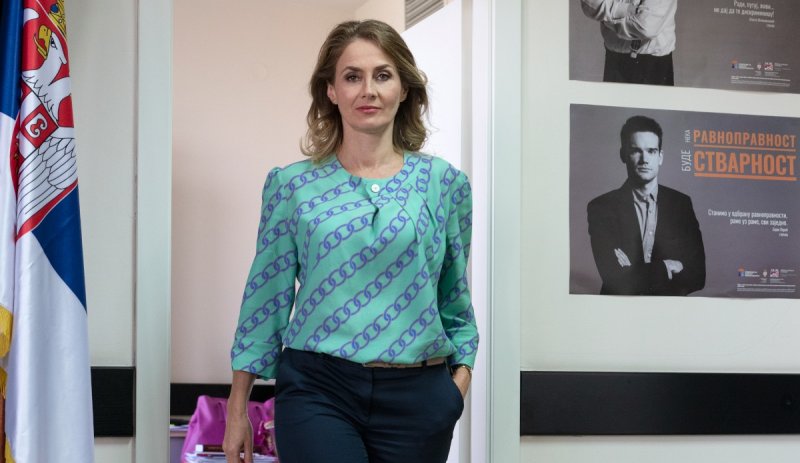Women in Serbia are legally the most equal in the Western Balkans, according to data from the World Bank. But data from media reports say that since the beginning of this year, in just 64 days, nine women have been killed. Although the laws give us a solid scope of action, we still have to do a lot to defend every woman’s right to life and dignity, says Brankica Janković, Commissioner for the Protection of Equality, on the occasion of International Women’s Day.
Women who have suffered some form of violence in 51 percent of cases name their husband or partner as the abuser. According to the Commissioner, this is one of the key findings of the research that we will soon present to the public, and it concerns the causes of non-reporting of domestic violence. In addition to the support of the family and the immediate environment of women who suffer violence, it is essential to establish a body for monitoring femicide in Serbia to ensure data collection and improve the work of institutions and the system of protecting women from violence, says Janković. She points out that misogyny and sexism are widespread in the digital space, encouraging increased violence in that sphere. It is necessary to create a safe digital environment for women and mechanisms that will punish both the perpetrators of digital violence and the platforms that enable it, concludes the Commissioner.
Although there has been progress in realizing women’s rights in the last half century, they still encounter various explicit or hidden forms of inequality and discrimination almost daily. The Commissioner’s practice shows that women are discriminated against the most in the field of work and employment, and even though they are also more visible in traditionally “male” occupations, their inequality is still significantly reflected in security, science, technology, and sports, where they are almost absent in decision-making positions.
The World Bank estimates the economic value of gender inequality globally at $160.2 trillion, with women owning only 38 percent of total personal wealth. Investing in education and greater opportunities for girls and women has a positive economic impact because reducing the gender wealth gap is essential for sustainable, inclusive development. Only by economically empowering women, encouraging their abilities, and educating them can things change for the better for women and the whole society, said the Commissioner, congratulating the March 8 day.


